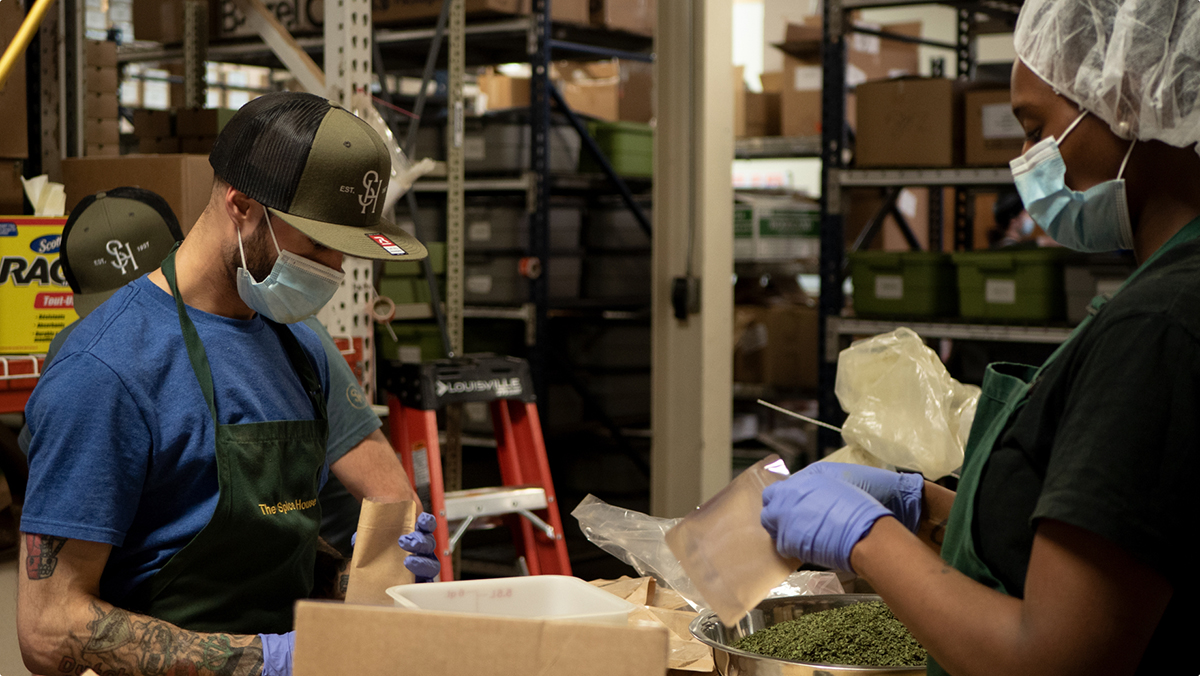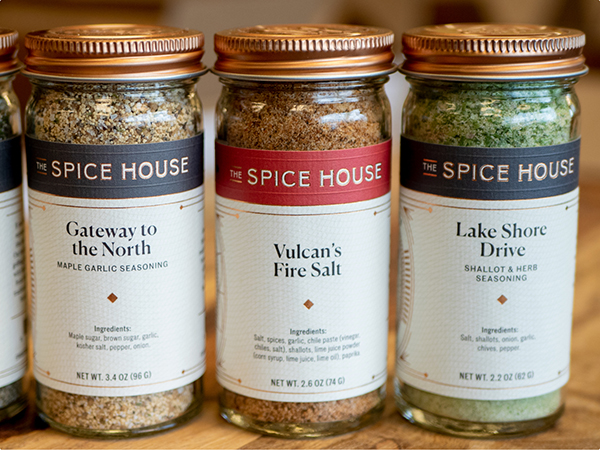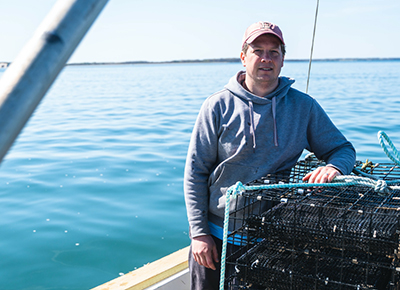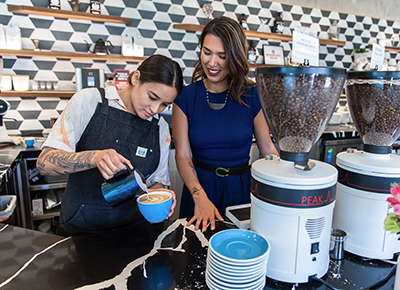Charlie Mayer, CEO | Evanston, IL | B2B / Food Services

CHARLIE MAYER, CEO
Business owners who felt empowered by digital tools have projected less loss of revenue as a result of the COVID crisis, than those who did not. They were also 4.5X more likely (9% vs. 2%) to project a revenue increase.
2%
4.5x
9%
The use of digital tools have been particularly helpful to suburban small business owners, a majority of whom credit digital tools with saving them from losing revenue, closing, or even downsizing.
It wasn’t as if he had the most traditional qualifications. “I’d never run a company. I had no prior experience in retail. I didn't know a thing about digital marketing or e-commerce. This business was based in the Midwest, and I was living in Washington, D.C. Seemed perfect.” It was a tough challenge, but Charlie’s drive, paired with his passion for digital tools and cloud-based efficiency, turned out to be a great fit for The Spice House. The digital transformation he led enabled it to not only survive but also help others do so as well when crisis struck.
The Spice House prides itself as a purveyor of spices, herbs, blends, and extracts to everyone from Michelin-star chefs to home cooks. It began as a single store on Galena Street in Milwaukee in 1957, and first got on the internet in 2000. Charlie digitized the back office in 2018 and replatformed the website in 2019. He sees the company’s future as digitally native and internet-first.
As a first step in early 2018, Charlie introduced Slack and Zoom, which were obvious and necessary tools given that he lived hundreds of miles away. “My remote leadership basically required the adoption of these tools early on,” Charlie says, “which is why when COVID hit, communication really wasn’t that big of a deal for us; it was just, ‘See you on Slack, see you on Zoom.’” But the most important change for the company’s operations overall—not to mention its ability to function effectively during a pandemic—was to optimize internet sales, in-store pickups, and customer service operations and communications via platforms like Shopify and Zoho and to digitize its day-to-day functions through G Suite. The company also focused heavily on digital advertising through Google and Facebook.
Charlie recalls the onset of the COVID-19 crisis as a scary and uncertain time. He revised operations at the company’s four brick-and-mortar locations for a few days before deciding to shut them down, except for online pickup orders. At that point, he had no choice but to cross his fingers and hope for the best. He didn’t have to wait long for an answer. Customers were ready to reconnect with their love of cooking in quarantine, and The Spice House had just what they needed. Sales exploded online. The business began shipping at unprecedented levels with more orders than any other time in its six-decade history.

“April and May are traditionally the worst months for spice-buying, and November and December, where holiday sales account for the majority of our profit each year, are always the best,” Charlie says. “Well, the last two months have been bigger than the holidays. The kind of sales we’ve seen are just orders of magnitude larger than anything we would have expected—and there is no way we could’ve done so well if the company were not as digitally connected as it is.”
The company rapidly expanded its workforce to keep up with demand, bringing on many workers who had been laid off from local restaurants. Charlie says the ability to help out his colleagues in a struggling industry is one of the most rewarding aspects to come out of this situation. In addition to that is his ability to spotlight other food-related small businesses in his marketing communications and to invite Spice House customers to consider checking them out too. “We’re all in this together,” Charlie says, “and it is precisely because we have been able to do so well as a digitally connected business that we are able to help others collectively get through the challenging times with us.”
The Spice House was founded on the idea that great spices and great food can enrich every kitchen. Now that many Americans are rediscovering cooking, Charlie can help thanks to his company’s strong digital backbone. “Our systems work the same today as they did three months ago, and it’s really amazing when you think about it,” Charlie says. “The world can go on pause for months at a time, and a cloud-connected business can just go right on.”

Finding opportunity in nationwide stay-at-home policies, which created a massive surge in its online sales, this company leaned into its experience with digital tools for a solution to meet the new demand.
Learn more
Business skidded to an abrupt halt for this company when restaurants shuddered. Using digital tools, the company reinvented itself overnight with ‘door-to-door’ direct online sales to its customers.
Learn more
When the crisis closed this company’s doors, digital tools opened others. From increased online sales to the creation of a whole new online community, this company recovered its losses and turned a profit thanks to its digital strategy.
Learn more
Using a well-honed digital platform that diverts surplus food to the hungry, this company created a whole new process—in the midst of the crisis—to connect grocery donations to struggling families.
Learn more